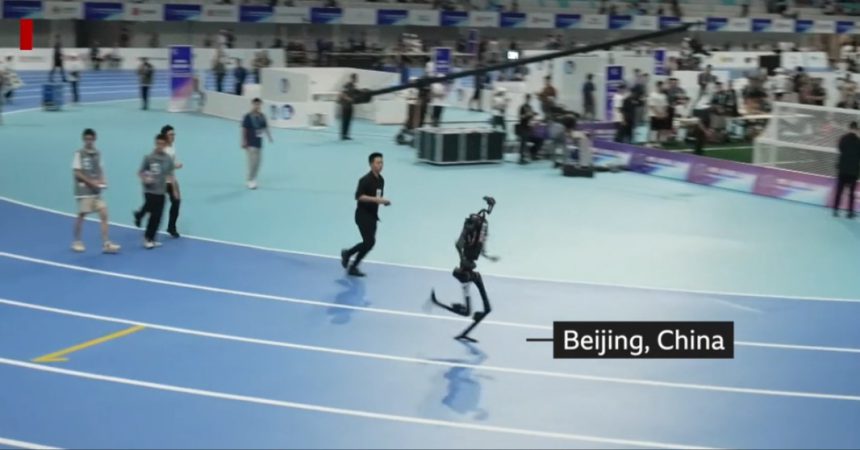The world’s first Humanoid Robot Games opened in Beijing on Friday, bringing together more than 500 androids from 16 countries in a futuristic blend of sport, technology, and spectacle. From 100-metre hurdles to kung fu demonstrations, the competition offered glimpses of both the promise and the limitations of the rapidly evolving field of robotics.
Held at the National Speed Skating Oval; a venue built for the 2022 Winter Olympics — the event features not only traditional sports like athletics and basketball, but also practical challenges such as medical supply categorisation and automated cleaning. Organisers say it is the first global competition dedicated exclusively to humanoid robots, those designed to mimic the human form.
While the robots’ jerky movements and frequent tumbles drew laughter from spectators, there were also flashes of striking ability. In a five-a-side football match, 10 child-sized androids shuffled awkwardly across the pitch, often falling over in clusters. Yet in the 1500-metre race, Chinese manufacturer Unitree’s humanoids moved with a surprising pace, easily outrunning foreign rivals.
The fastest runner completed the distance in six minutes, 29.37 seconds, still well behind the human men’s world record of 3:26:00 but remarkable for a machine. In one comic moment, a mechanical racer accidentally ploughed into its human operator, sending the man to the ground while the robot remained upright. No injuries were reported.
“I believe in the next 10 years or so, robots will be basically at the same level as humans,” said 18-year-old spectator Chen Ruiyuan, reflecting the optimism among many in the crowd.
Robot competitions have existed for decades, but this event’s exclusive focus on humanlike machines marks a new chapter in the field. The games are part of China’s broader national strategy to dominate the robotics industry, with government investment aimed at making the country a global hub for AI-driven automation.
Whether these android athletes will one day challenge human champions remains uncertain.








